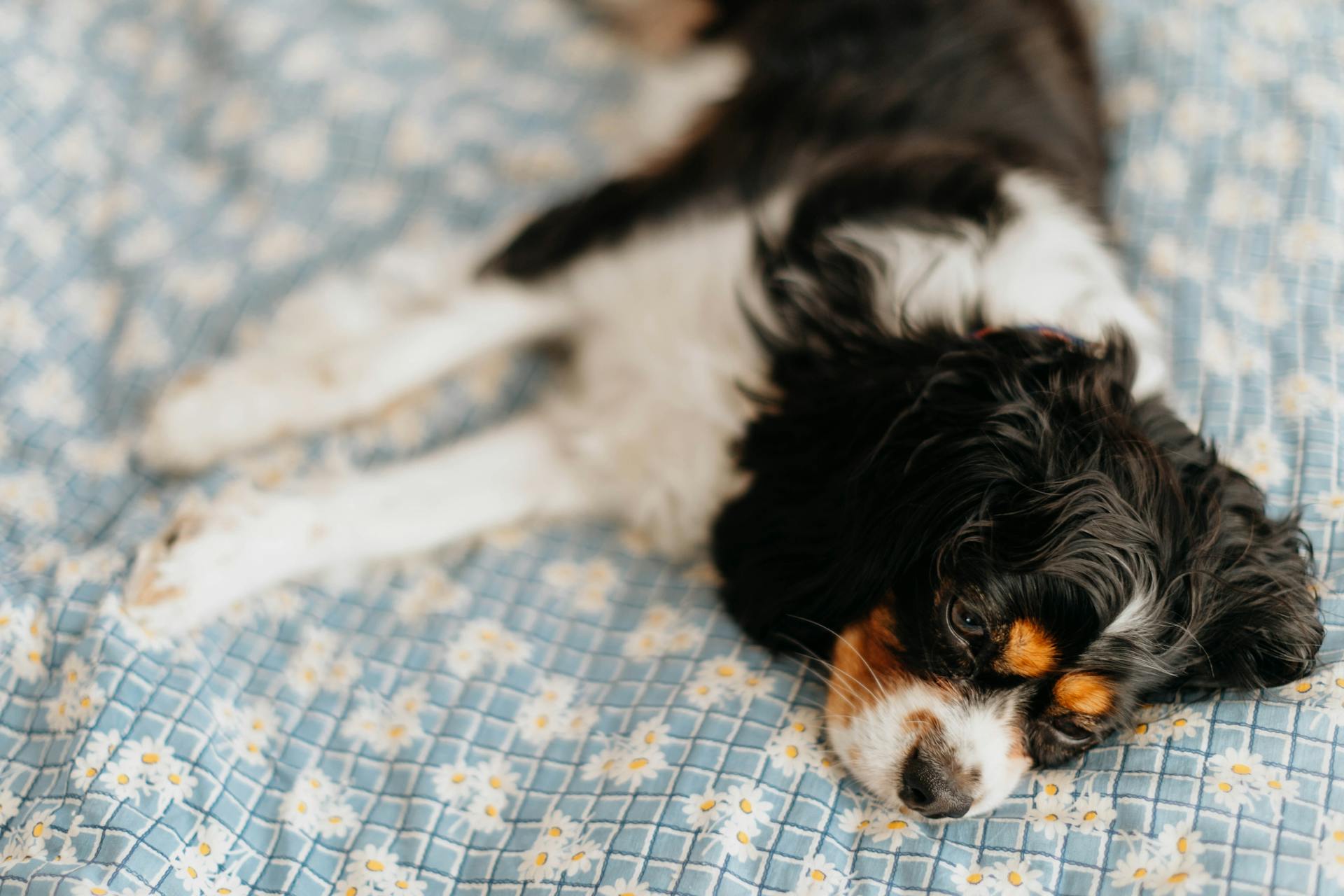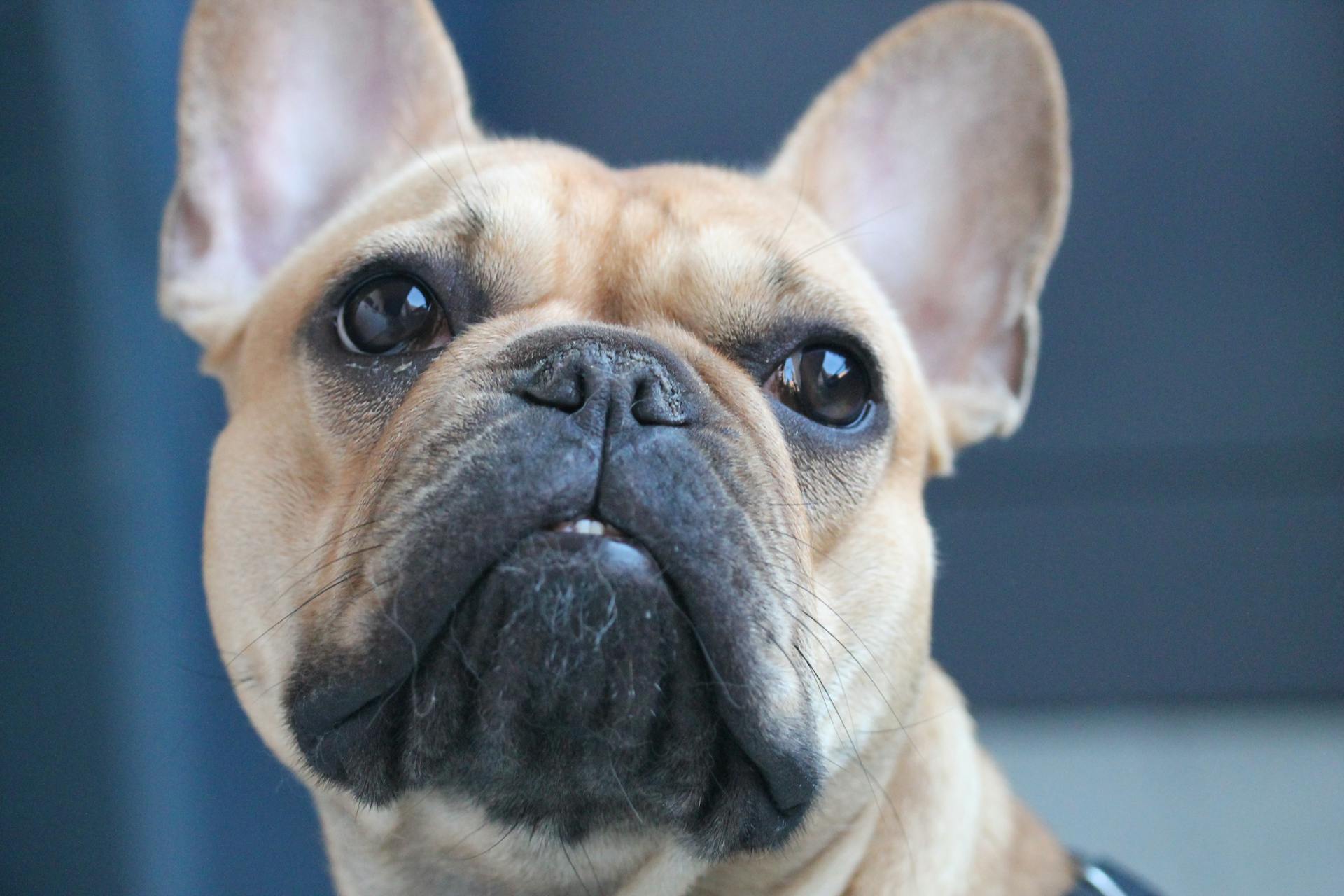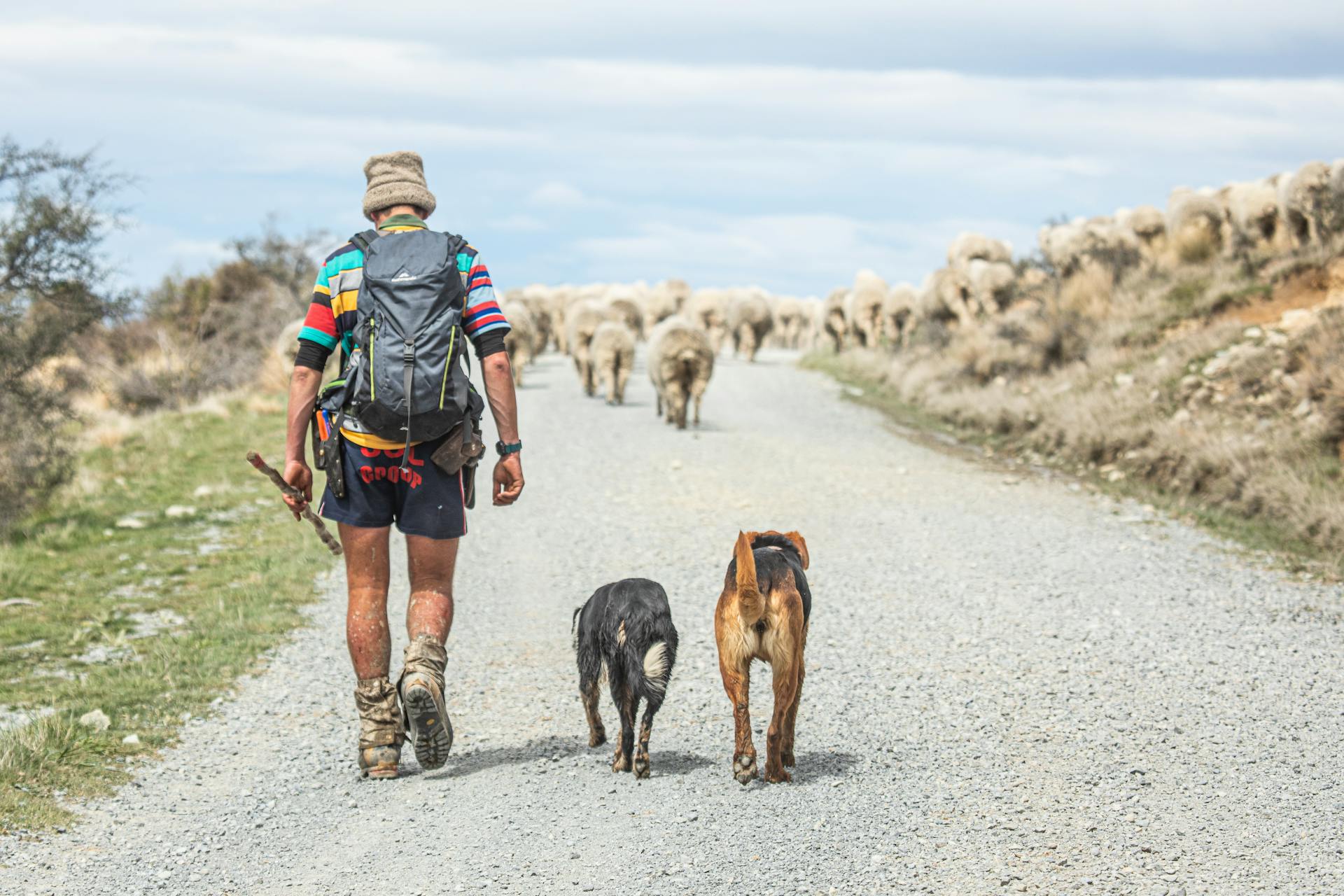
Sheepadoodles are a cross between a sheepdog and a poodle, making them a unique and lovable breed. They're known for being highly intelligent and easy to train.
Their low-shedding coat is a major advantage for people with allergies or who prefer less dog hair. Sheepadoodles can grow up to 24 inches tall and weigh between 40-80 pounds.
Their friendly and outgoing personalities make them great family pets, but they can be wary of strangers. Sheepadoodles are generally great with children, but as with any breed, supervision is essential.
They require regular grooming to prevent matting and tangling of their fur.
What Is a Sheepadoodle?
A Sheepadoodle is a crossbreed that results from combining an Old English Sheepdog with a Poodle. They're a popular choice for families and individuals with allergies due to their low-shedding coats.
Sheepadoodles typically have a sturdy build and expressive eyes that reflect their friendly and affectionate nature. Their coats come in a variety of colors, including black and white.
Sheepadoodles are known for their friendly and sociable personalities, making them excellent family companions. They tend to get along well with children and other pets.
Here are some key characteristics of Sheepadoodles:
Sheepadoodles are highly trainable, thanks to their Poodle lineage, and can excel in obedience and various dog sports.
History
The Sheepadoodle has a fascinating history that dates back to the 1980s. Breeders created this crossbreed to combine the best qualities of the Old English Sheepdog and the Poodle.
The goal was to produce a large, low-shedding dog that would make an excellent companion animal and a great family pet. This was especially appealing to families with allergies.
The Sheepadoodle's popularity grew as people discovered its gentle nature and love for children. They also made great guard dogs, protecting their owner's home with loyalty and care.
Some Sheepadoodles have unfortunately ended up in shelters or rescue groups over the years. If you're considering bringing one home, consider adoption and reach out to local shelters or Sheepadoodle rescues for more information.
Overview
The Sheepadoodle is a lovable and charming mixed breed that's gained popularity in recent years. They're a cross between an Old English Sheepdog and a Poodle, resulting in a dog with a super-friendly personality, low-shedding coat, and a teddy bear-like appearance.
Sheepadoodles typically stand between 18 to 27 inches tall and weigh between 65 to 85 pounds. Their lifespan is around 12 to 15 years, making them a long-term companion.
Their friendly nature makes them excellent with children, dogs, and families in general. They're also known for being outgoing, playful, and high-intelligence dogs.
Sheepadoodles have a unique coat that's curly and medium in length, with colors ranging from black to white and patterns like bicolor. They require regular grooming to prevent matting.
Here's a quick rundown of Sheepadoodle sizes, based on their Poodle lineage:
Sheepadoodles are active dogs that require regular exercise to keep them happy and well-adjusted. They also enjoy mental stimulation, so interactive play is a must.
Appearance and Size
The Sheepadoodle's appearance can be quite unique, with a patchwork of black and white markings that give them a panda-like appearance.
These markings can sometimes fade into gray as the dog ages, similar to an Old English Sheepdog's coloring. On rare occasions, a Sheepadoodle will be red and white.
In general, a Sheepadoodle bred from a standard poodle will weigh between 65-85 pounds and stand 18-27 inches tall.
Sheepadoodles bred from mini poodles and toy poodles will be significantly smaller, making them a great option for families with smaller living spaces.
Their coat can be straight or more curly, and it's often hard to tell until the puppy gets a bit older.
Discover more: Shih Tzu Terrier Mix Black and White
Appearance
Sheepadoodles can have a variety of appearances, but nearly all share the distinctive patchwork of black and white markings that give them a panda-like appearance. These markings can sometimes fade into gray as the dog ages.
The face shape of a sheepadoodle can range from square like an Old English sheepdog to more domed like a poodle. On rare occasions, a sheepadoodle will be red and white.
You might enjoy: White Sheepadoodle
Sheepadoodles bred from standard poodles typically weigh 65-85 pounds and stand 18-27 inches tall. Their coat can be straight or curly, but it's hard to tell until the puppy gets a bit older.
Their size and coat type can vary depending on whether they're bred from a mini or toy poodle, resulting in a smaller dog.
Size
When it comes to size, Sheepadoodles can vary depending on their parent breeds. They can weigh in at 60 to 80 pounds.
The most common Sheepadoodle size is due to the Standard Poodle parent, which contributes to their larger size. Their height ranges from 16 to 22 inches at the shoulder.
The other varieties of Sheepadoodles, such as the toy and mini, will be smaller in size.
Recommended read: Sheepadoodle Mini Size
Temperament and Personality
Sheepadoodles are known to be playful and energetic, inheriting traits from both their Old English sheepdog and poodle parents. They're a mixed breed, which means their personality can vary depending on the individual dog.
Sheepadoodles are wonderful family dogs that love attention and children. They're exceptionally playful and sweet, and they enjoy the company of other dogs. They're also very affectionate and love to be around and please their owners.
These dogs are very intelligent, inheriting a high emotional IQ from their poodle side. They're easy to train, especially with positive reinforcement. Sheepadoodles will thrive on mental stimulation and will love to learn new tricks.
Here are some key traits of Sheepadoodles:
- Playful and energetic
- Intelligent and easy to train
- Affectionate and loving
- Great with children and other dogs
- Need regular exercise and mental stimulation
Temperament and Personality
Sheepadoodles are known for their easygoing temperament, which they inherit from their Old English sheepdog parent. They're a playful and energetic breed that loves attention and children.
One of the interesting things about Sheepadoodles is that they're a mixed designer breed, meaning they can inherit different traits from their parents. This can result in a wide variety of personality traits depending on the individual dog.
Sheepadoodles are wonderful family dogs that love to be around their owners. They're exceptionally playful, sweet, and enjoy the company of other dogs. They might alert you to a passing stranger with a bark, but they're typically more mellow than breeds developed for guarding.
Sheepadoodles are intelligent dogs that inherit their working dog's herding instincts from their Old English sheepdog parent. They have a great deal of intelligence from their poodle forebears and are eager to please their owners by sitting on cue and learning tricks.
Sheepadoodles are lovable and lively dogs that enjoy snuggling with their owners on the couch just as much as they would enjoy going outside for a brisk walk. Some Sheepadoodles will have acquired their herding drive from their Old English Sheepdog parent and will need to burn off energy with plenty of playtime outdoors.
Here are some key characteristics of Sheepadoodles:
- Very bright with a high emotional IQ
- Very playful
- Eager to play, socialize, and love children
- Affectionate and love to be around and please their owners
Sheepadoodles are super calm, sociable, and obedient, making them a great addition to families with young children. They're also gentle and quiet around little ones, which is an excellent trait. Sheepadoodles get on well with other dogs and pets too, as they're not overbearing or domineering.
Sheepadoodles are incredibly expressive and love to be around their owners. They'll always look forward to their owners coming home, and it's not uncommon for them to be a bit boisterous and require training at an early age.
Recognized by Organizations?
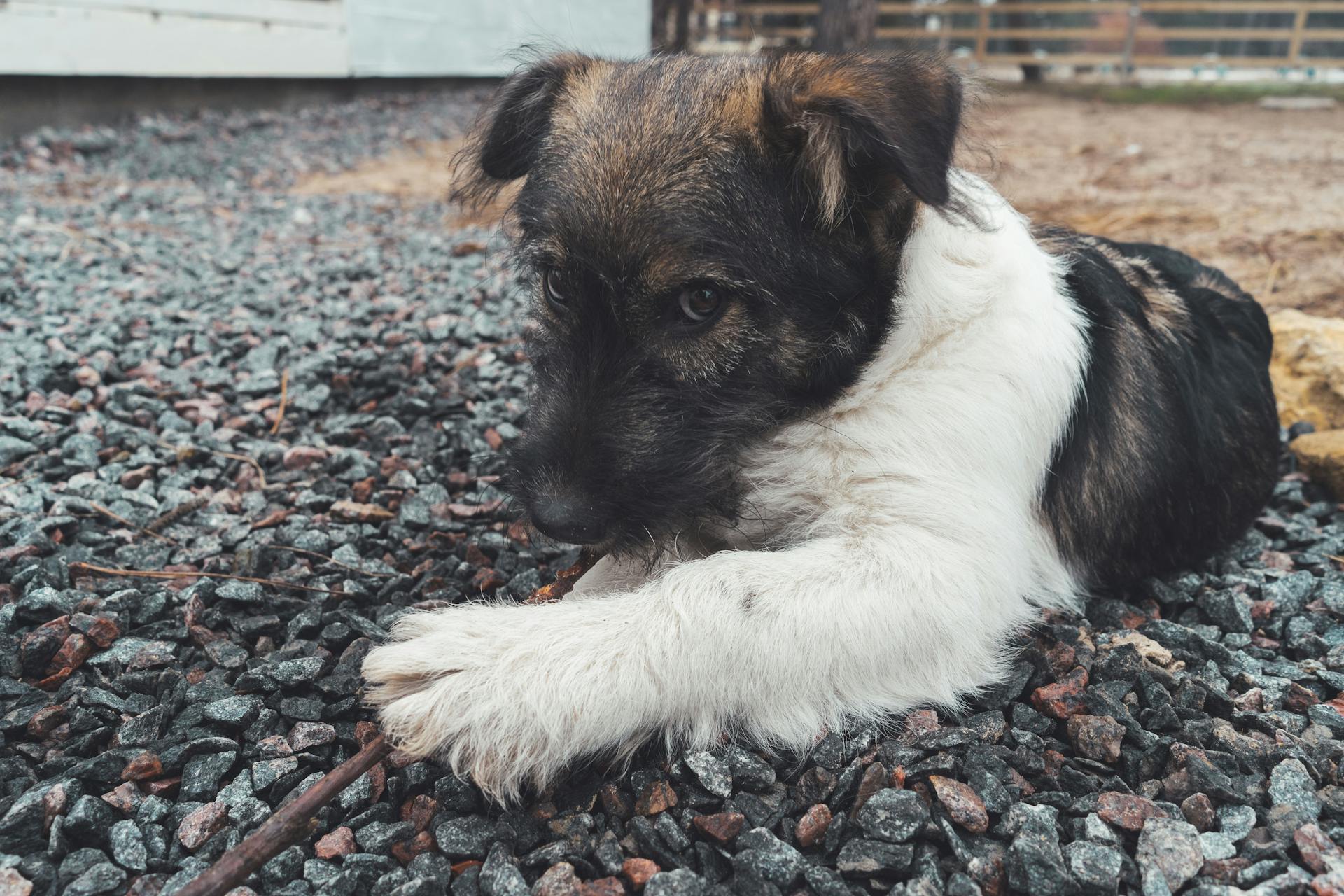
Sheepadoodles are not eligible for registration with the American Kennel Club (AKC) due to being a crossbreed.
However, they are recognized by several organizations, including the Dog Registry of America (DRA), American Canine Hybrid Club (ACHC), and International Designer Canine Registry (IDCR).
These organizations acknowledge the Sheepadoodle as a legitimate hybrid breed, providing a sense of validation and community for owners.
Here are some of the organizations that register Sheepadoodles:
- Dog Registry of America (DRA)
- American Canine Hybrid Club (ACHC)
- International Designer Canine Registry (IDCR)
In addition to these organizations, there are also many rescue groups for the parent breed, the Old English Sheepdog, which can provide support and resources for Sheepadoodle owners who may be considering adoption or have questions about the breed.
Living Needs and Care
Sheepadoodles are active dogs that require regular exercise to stay healthy and happy. They thrive on physical activity, so you'll need to find ways to integrate your dog into your daily routine, such as taking them on runs, neighborhood walks, and hikes.
A fenced yard is ideal for sheepadoodles, but if you live in an apartment, you can still provide them with regular exercise through playtime in a dog park or by using a ball launcher for a game of fetch. This will help burn off their energy and prevent destructive behavior.
Sheepadoodles have thick coats that are perfect for cold-weather climates, but in warmer climates, you may need to trim their fur shorter and provide them with cool indoor spaces to relax in.
Here's a quick rundown of their exercise needs:
Remember, sheepadoodles are social animals that thrive on interaction, so be prepared to spend quality time with your dog and provide them with the exercise and attention they need to stay happy and healthy.
Living Needs
Sheepadoodles are active dogs that require regular exercise to stay healthy and happy. They need daily walks, playtime, and mental stimulation to prevent boredom and destructive behavior.
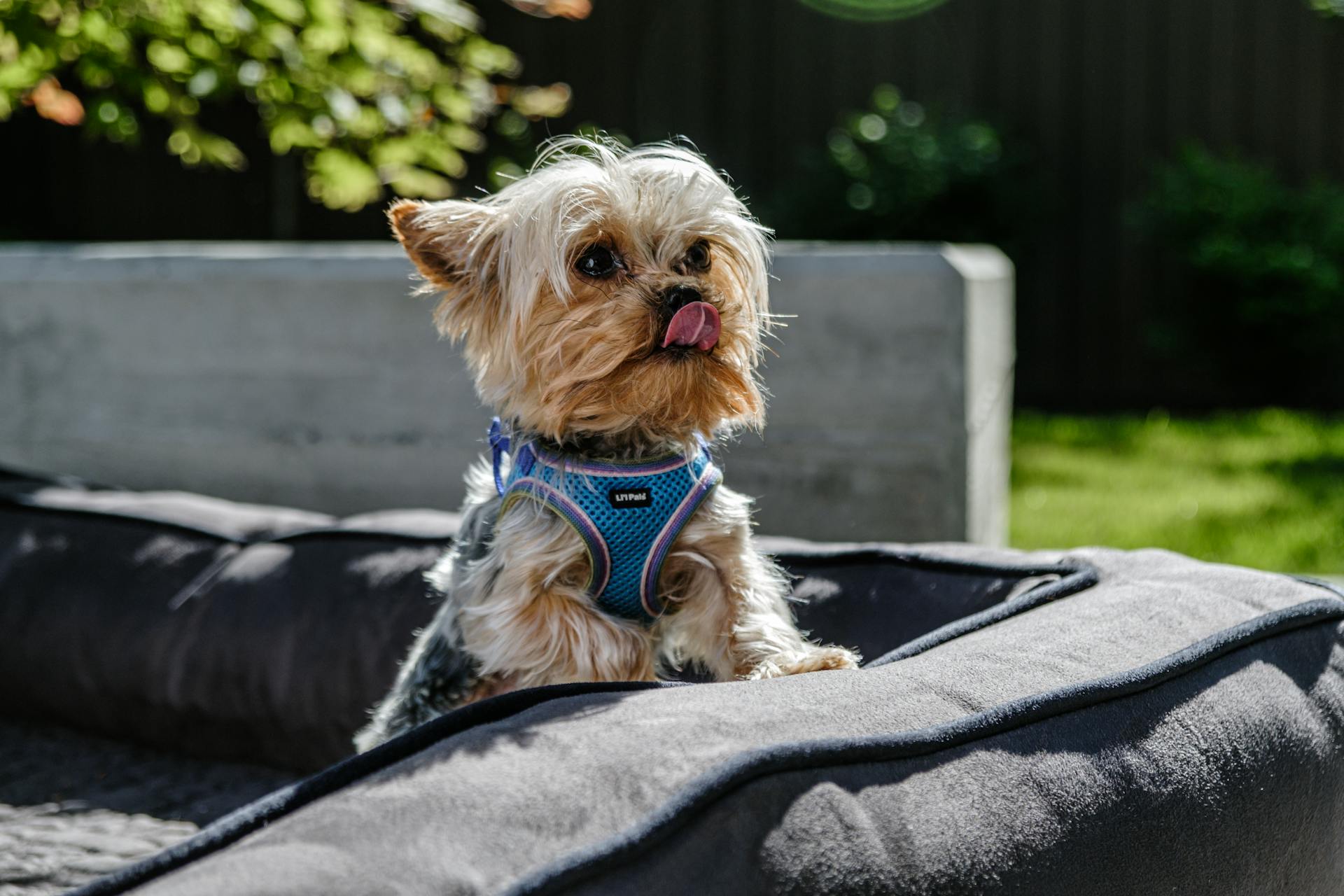
To provide your Sheepadoodle with enough exercise, try incorporating activities like running, hiking, and fetch into your daily routine. You can also use a ball launcher for a fun game of fetch.
Sheepadoodles are naturally social animals that thrive on interaction with their family. They love to be around people and enjoy playtime at dog parks, but be cautious of their herding instinct and tendency to try to round up small animals and children.
In warmer climates, Sheepadoodles can benefit from a shorter coat trim to keep them cool. However, in cold-weather climates, their thick coats are perfect for braving the elements.
Here's a rough estimate of the daily exercise needs for Sheepadoodles:
Remember, every dog is different, and your Sheepadoodle's exercise needs may vary depending on their individual energy level and health.
Feeding
Feeding your Sheepadoodle requires careful consideration of their large breed and high energy needs. They can gain weight easily, so it's essential to break their meals into portions throughout the day.
Limit treats to avoid overfeeding, and don't engage in strenuous exercise after meals to prevent discomfort. As with all dogs, their dietary needs will change as they grow from puppyhood to adulthood and into their senior years.
Consult your veterinarian for personalized recommendations on your Sheepadoodle's diet, as individual variations in weight, energy, and health require tailored advice.
Health and Grooming
Sheepadoodles are generally healthy dogs, but like all breeds, they can be prone to certain health issues. One of the most common health problems Sheepadoodles face is bloat, a life-threatening condition that requires immediate veterinary intervention.
Their large size also makes them susceptible to hip dysplasia, a common orthopedic condition that can lead to arthritis and mobility issues. Regular veterinary checkups are crucial to catch any potential health problems early on.
Some Sheepadoodles may also inherit conditions like Addison's disease, joint issues, and skin disorders from their Poodle and Old English Sheepdog parents.
Here are some common health issues Sheepadoodles may face:
- Bloat (Gastric Dilatation and Volvulus, GDV)
- Hip Dysplasia
- Addison's Disease (Hypoadrenocorticism)
- Joint Issues
- Sebaceous Adenitis/Skin Disorders
Regular grooming is also essential for Sheepadoodles, as their long coats can mat easily. Brushing them 2-3 times a week and taking them to the groomer every 6-8 weeks can help prevent matting and keep their coat looking its best.
Health
As a dog owner, you want to ensure your furry friend stays healthy and happy. A mixed breed dog like the Sheepadoodle can be a great choice, but it's essential to know about potential health issues.
Sheepadoodles can be prone to bloat, a life-threatening condition where the stomach fills with gas and twists. This requires immediate veterinary intervention.
Feeding your Sheepadoodle in a food puzzle or maze can help slow down eating, preventing stomach bloat in large dogs. This also provides mental stimulation and independent time for your puppy.
Hip dysplasia is another common health problem in Sheepadoodles, where the hip joint doesn't develop properly, causing pain and discomfort. Regular veterinary checkups can help detect this condition early on.
For your interest: Sheepadoodle Health Problems
Addison's disease is a hormonal disorder in Sheepadoodles, where the adrenal glands don't produce enough cortisol and aldosterone. This requires lifelong hormone replacement therapy to manage the condition.
Joint issues, such as arthritis and luxating patella, can also affect Sheepadoodles, causing pain, stiffness, and reduced mobility. Pain medication, physical therapy, and surgery may be necessary to manage these conditions.
To keep your Sheepadoodle healthy, it's crucial to discuss their health with your breeder and veterinarian. Regular veterinary checkups and proper care can help prevent or manage these health issues.
Here are some common health problems in Sheepadoodles:
- Bloat (Gastric Dilatation and Volvulus, GDV)
- Hip Dysplasia
- Addison's Disease (Hypoadrenocorticism)
- Joint Issues (arthritis, luxating patella, cruciate ligament injuries)
- Sebaceous Adenitis/Skin Disorders
Coat Color and Grooming
Sheepadoodles have coats that are a mix of their Poodle and Old English Sheepdog parents' coats and colors. They can be a mix of black and white, solid black, and in some cases, gray.
Their coats can be flat, wavy, or curly, and they tend to be longer. Sheepadoodles are a great choice for allergy sufferers because they are considered low to non-shedders.
They will need to be groomed roughly every eight weeks, and must be brushed two to three times a week to prevent their coats from getting matted. Regular brushing is necessary to keep their coat from matting.
In our experience, regular baths and trims keep their teddy bear look. A cut and bath every 6 weeks, and a bath every 3 weeks, is a good routine for Sheepadoodles.
Here's a rough estimate of grooming costs: a full size Sheepadoodle cut/bath is $90 plus tip, and a bath alone is $50 or so.
Frequently Asked Questions
Do sheepadoodles bark a lot?
Sheepadoodles don't bark excessively, but they do make noise to alert their owners to potential threats. Their intelligence and curiosity require mental stimulation to prevent boredom and excessive vocalization.
Are sheepadoodles needy?
No, Sheepadoodles are not clingy or overly demanding. They're actually quite content with attention on their own terms, making them a great fit for busy owners.
Featured Images: pexels.com

